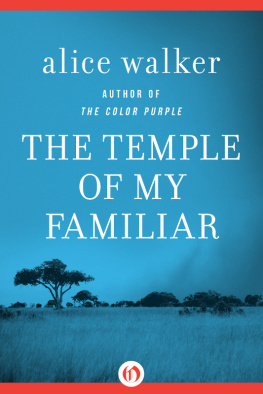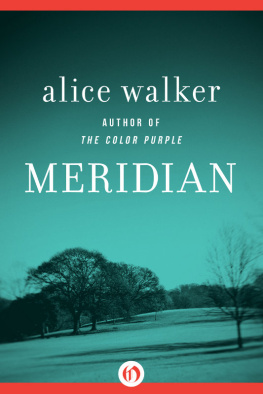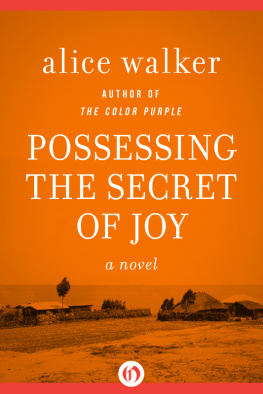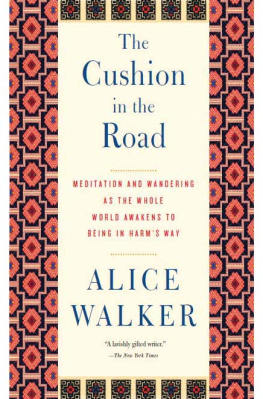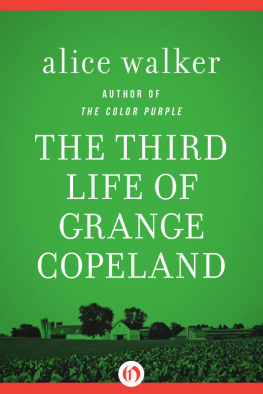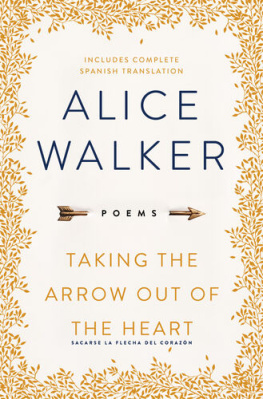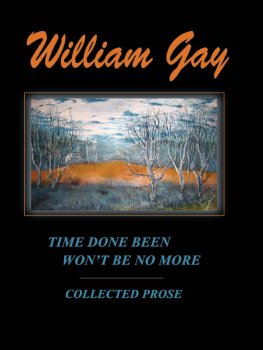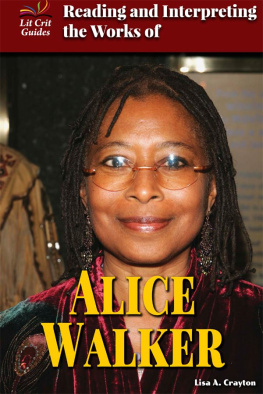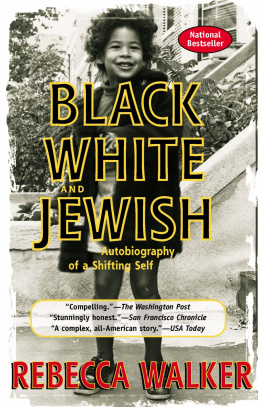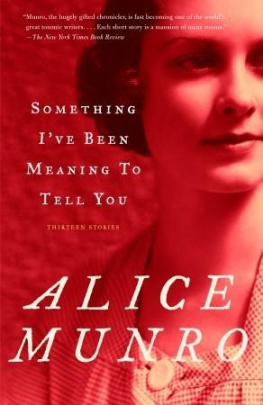CONTENTS
LIVING BY THE WORD
Journal (April 17, 1984)
Am I Blue?
Father
Trying to See My Sister
The Dummy in the Window
Longing to Die of Old Age
The Old Artist
My Big Brother Bill
Journal (August 1984)
Coming In from the Cold
Oppressed Hair Puts a Ceiling on the Brain
Dear Joanna
In the Closet of the Soul
Journal (August 1983, October 1983, January 1984)
A Name Is Sometimes an Ancestor Saying Hi, Im with You
A Thousand Words
Journey to Nine Miles
My Daughter Smokes
On Seeing Red
Journal (February 12, 1987)
Not Only Will Your Teachers Appear, They Will Cook New Foods for You
Everything Is a Human Being
Nobody Was Supposed to Survive
All the Bearded Irises of Life
Why Did the Balinese Chicken Cross the Road?
Journal (June, September 1987)
The Universe Responds
YOU CANT KEEP A GOOD WOMAN DOWN
Nineteen Fifty-Five
How Did I Get Away with Killing One of the Biggest Lawyers in the State? It Was Easy.
Elethia
The Lover
Petunias
Coming Apart
Fame
The Abortion
Porn
Advancing Lunaand Ida B. Wells
Laurel
A Letter of the Times, or Should This Sado-Masochism Be Saved?
A Sudden Trip Home in the Spring
IN LOVE & TROUBLE
Roselily
Really, Doesnt Crime Pay?
Her Sweet Jerome
The Child Who Favored Daughter
Everyday Use
The Revenge of Hannah Kemhuff
The Welcome Table
Strong Horse Tea
Entertaining God
The Diary of an African Nun
The Flowers
We Drink the Wine in France
To Hell with Dying
IN SEARCH OF OUR MOTHERS GARDENS
Part One
Saving the Life That Is Your Own: The Importance of Models in the Artists Life
The Black Writer and the Southern Experience
But Yet and Still the Cotton Gin Kept on Working
A Talk: Convocation 1972
Beyond the Peacock: The Reconstruction of Flannery OConnor
The Divided Life of Jean Toomer
A Writer Because of, Not in Spite of, Her Children
Gifts of Power: The Writings of Rebecca Jackson
Zora Neale Hurston: A Cautionary Tale and a Partisan View
Looking for Zora
Part Two
The Civil Rights Movement: What Good Was it?
The Unglamorous but Worthwhile Duties of the Black Revolutionary Artist, or of the Black Writer Who Simply Works and Writes
The Almost Year
Choice: A Tribute to Dr. Martin Luther King, Jr.
Coretta King: Revisited
Choosing to Stay at Home: Ten Years after the March on Washington
Good Morning, Revolution: Uncollected Writings of Social Protest
Making the Moves and the Movies We Want
Lulls
My Fathers Country Is the Poor
Recording the Seasons
Part Three
In Search of Our Mothers Gardens
From an Interview
A Letter to the Editor of Ms.
Breaking Chains and Encouraging Life
If the Present Looks Like the Past, What Does the Future Look Like?
Looking to the Side, and Back
To The Black Scholar
Brothers and Sisters
Part Four
Silver Writes
Only Justice Can Stop a Curse
Nuclear Madness: What You Can Do
To the Editors of Ms. Magazine
Writing The Color Purple
Beauty: When the Other Dancer Is the Self
One Child of Ones Own: A Meaningful Digression within the Work(s)
A Biography of Alice Walker

The teachers told us quietly that the way of experts had become a tricky way. They told us it would always be fatal to our arts to misuse the skills we had learned. The skills themselves were mere light shells, needing to be filled out with substance coming from our souls. They warned us never to turn these skills to the service of things separate from the way. This would be the most difficult thing, for we would learn, they told us, that no fundi could work effectively when torn away from power, and yet power in these times lived far, immeasurably far from the way. This distance from the seats of power to the way, this distance now separating our way from power usurped against our people and our way, this distance would be the measure of the fundis pain. They told us there was no life sweeter than that of the fundi in the bosom of his people if his people knew their way. But the life of a fundi whose people have lost their way is pain. All the excellence of such a fundis craft is turned to trash. His skills are useless in the face of his peoples destruction, and it is as easy as slipping on a riverstone to see his craftsmanship actually turned like a weapon against his people.
Our way, the way, is not a random path. Our way begins from coherent understanding. It is a way that aims at preserving knowledge of who we are, knowledge of the best way we have found to relate each to each, each to all, ourselves to other peoples, all to our surroundings. If our individual lives have a worthwhile aim, that aim should be a purpose inseparable from the way.
Our way is reciprocity. The way is wholeness.
Ayi Kwei Armah,
TWO THOUSAND SEASONS
The victory belongs to love.
Daniel Ortega
PREFACE
This book was written during a period when I was not aware I was writing a book. Indeed, what I thought I had taught myself while writing The Color Purple, a novel, was that writing itself was no longer necessary. For years Id longed to be alone in the middle of fields and forests, silent, without need of words. Knowing how ecstatic I can be simply lying on a hillside in the sun, I realized I will probably be happiestanticipating all of my possible incarnationsas a blade of grass. Besides, the daily news of death and despair coming in newspapers and over the airwaves began to seem the very breath of the planet itself: ominous and foul. I started to wonder if the old planet onto which I had been born, and on which I had toddled so delightedly as a baby, and explored so appreciatively as a childthe planet of enormous trees and mellow suns; the planet of week-long daysstill existed. If it did exist, then I wanted to be reconnected with it more than I wanted anything else in life. I wanted to tell it how much I loved it, before it was too late.
I set out on a journey to find my old planet: to gaze at its moon, to swim in its waters, to eat its fruits, to rediscover and admire its creatures; to purify myself in its wind and its sun. To my inexpressible joy I found it still there, though battered as an unwanted dog. But still beautiful, still mysterious, still with week-long days (if you turn off TV and radio for months on end), still profound. Still a







